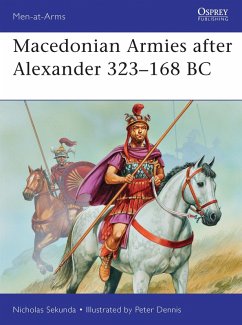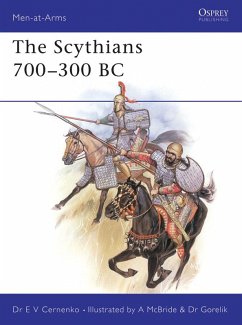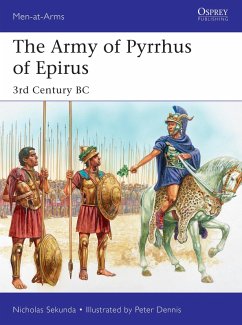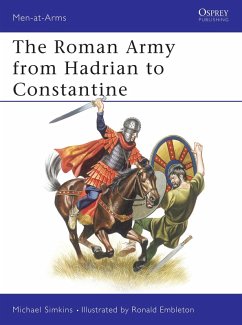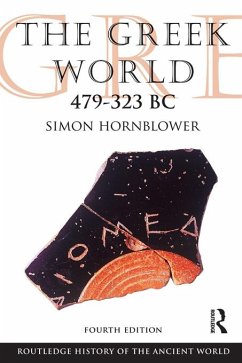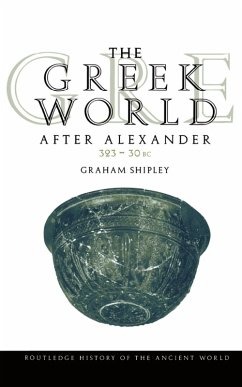
Macedonian Armies after Alexander 323-168 BC (eBook, ePUB)
Versandkostenfrei!
Sofort per Download lieferbar
9,95 €
inkl. MwSt.
Weitere Ausgaben:

PAYBACK Punkte
5 °P sammeln!
The death of Alexander the Great in 323 BC threw the Macedonians into confusion; there was no capable heir, and no clear successor among the senior figures in Alexander's circle. Initial attempts to preserve the unity of Alexander's conquests gave way to a period of bloody and prolonged warfare. For well over a century the largely mercenary armies of Alexander's successors imposed their influence over the whole of the Near East, while absorbing local military practices. After Rome's decisive defeat of Carthage in 202 BC, Macedonia came under increasing pressure from the Romans. Three wars betw...
The death of Alexander the Great in 323 BC threw the Macedonians into confusion; there was no capable heir, and no clear successor among the senior figures in Alexander's circle. Initial attempts to preserve the unity of Alexander's conquests gave way to a period of bloody and prolonged warfare. For well over a century the largely mercenary armies of Alexander's successors imposed their influence over the whole of the Near East, while absorbing local military practices. After Rome's decisive defeat of Carthage in 202 BC, Macedonia came under increasing pressure from the Romans. Three wars between the two powers culminated in the Roman victory at Pydna in 168 BC, which laid Alexander's empire to rest and established Roman hegemony in the Near East. Drawing upon a wide array of archaeological and written sources and written by a noted authority on the Hellenistic period, this survey of the organization, battle history and appearance of the armies of Alexander's successors is lavishly illustrated with specially commissioned full-colour artwork.




